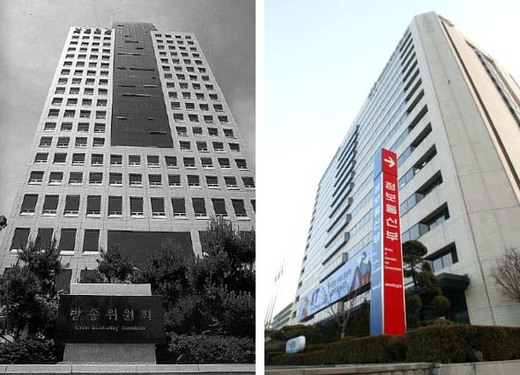 |
Politics entering the process, critics level
For the past month, the powerful Korean Broadcasting Commission’s hotly contested seats have remained vacant, mainly due to opposition from media groups that claim several nominees for the nine posts bear political agendas. The National Union of Media Workers (Eollon Nojo) released a statement Monday in which it claimed several of the individuals who are expected to be appointed are "absolutely unacceptable."Three members each are chosen by the National Assembly’s Culture and Tourism Committee, the National Assembly speaker, and the president. The Culture and Tourism Committee announced its nominations Monday, and the remaining appointees have all but been formally released to the public. According to the media workers’ union and media watch organizations, former JoongAng Ilbo editor Jeon Yuk, rumored to have been chosen by the National Assembly speaker, allegedly collected confidential information from the newspaper’s reporters during the 1997 presidential election and gave it to then-JoongAng Ilbo chairman Hong Seok-hyun, who then passed it to Samsung chairman Lee Kun-hee, who wanted inside information about the election. The other two expected Assembly speaker appointees are Gang Dong-sun, currently of KBS, and Seong Yeong-so, a former aide to President Roh Moo-hyun. Mr. Gang is accused of leaking internal KBS documents to the main opposition Grand National Party (GNP) for political purposes, while Mr. Seong’s nomination is being called inappropriate because he once worked for the current president. His appointment, according to critics, would harm the commission’s political neutrality. Lee Chun-bal, who is expected to be appointed by President Roh, is being opposed on similar grounds. The media workers’ union claimed the commission’s "service to the public and democracy" would suffer a "serious crisis" if the four men are approved as committee members. It threatened to physically block them from going to work at the commission’s offices. Kim Yeong-ho of the People’s Coalition for Media Reform called the future of broadcasting "gloomy" with the prospect of the four nominees under contention deciding major areas of policy.





